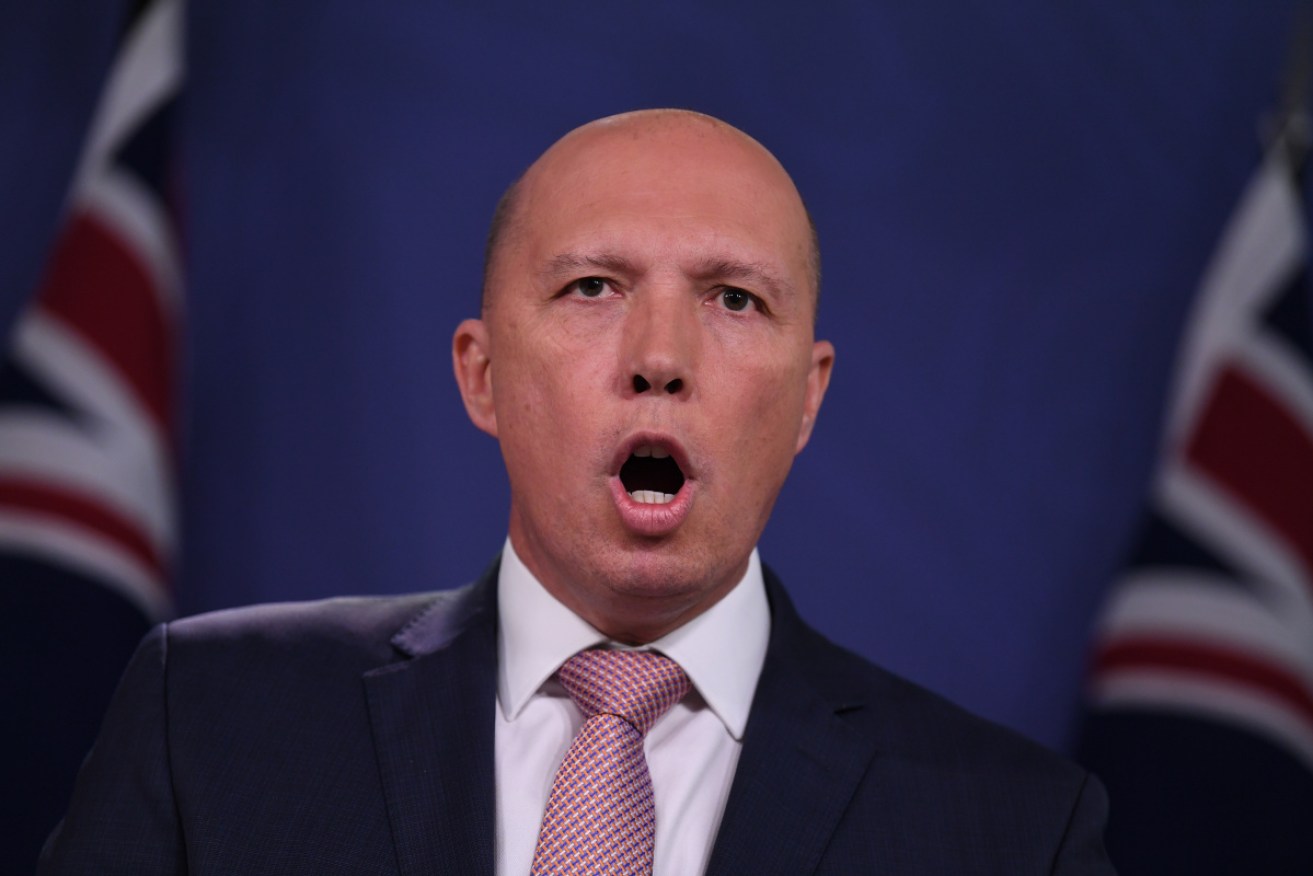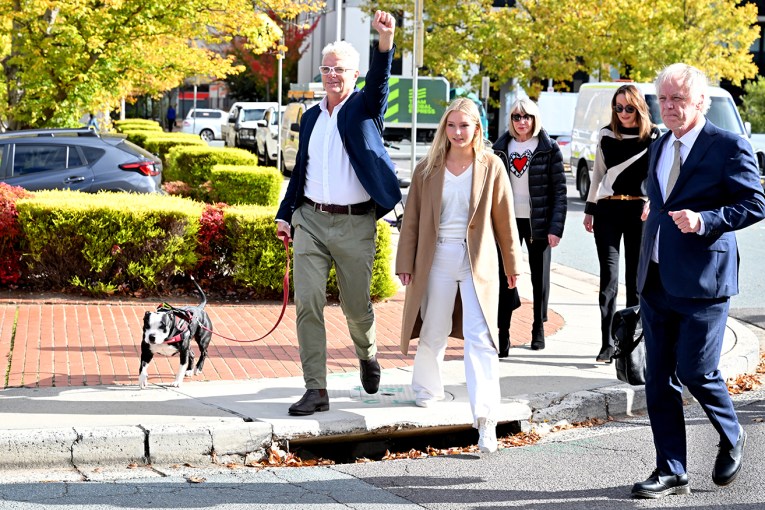Peter Dutton pushes for child-sex offender register


Peter Dutton has called for climate change protesters to be "named and shamed". Photo: AAP
Child sex offenders could have their names and photos uploaded to a public register under a proposal Home Affairs Minister Peter Dutton says is necessary to protect children and communities.
The push after reports of child sexual abuse and exploitation to the Australian Federal Police grew by 77 per cent between 2017 and 2018.
Mr Dutton said the national child-sex offender register would enable parents to check up on the people who interact with their children, telling The Australian it would be the “toughest crackdown on pedophiles in Australia’s history”.
However, one child protection advocate has branded the move a “political stunt”.
The online register would contain information such as the person’s name, photograph, aliases, date of birth, nature of offending and general locality, such as their postcode.
Juvenile sex offenders would not be identified if they were below 18 years old.
The information would be vetted by law enforcement to ensure it did not identify victims of abuse or breach non-publication orders.
States and territories would contribute information into the national database, meaning the federal government would need their support.
“A national public register of child-sex offenders is an important step to improve protections for Australia’s most vulnerable citizens,” Mr Dutton told the newspaper.
“This will have a strong deterrent effect on offenders and ensure that parents are not in the dark about whether a registered sex offender has unsupervised access to their children.”
Independent Victorian senator and long-term anti-pedophile campaigner, Derryn Hinch, said people were entitled to know about child sex offenders in their area.
“This is the only reason I got into politics,” he told ABC Radio National on Wednesday.
“Out there in the public, you talk to the parents of young kids and they support it. I think the government’s doing a fantastic thing by bringing this out now.”
He said a national child sex offender register in the United States, established in 1996, hadn’t encouraged vigilantes.
President of the Blue Knot Foundation, Cathy Kezelman, told the ABC that while there’s evidence to show a public register could be a potential protection against high-risk offenders, for low-risk offenders it may not be a deterrent at all.
“We also need to understand that the vast majority of children are sexually abused in the home, family and neighbourhood,” she told the broadcaster’s AM program.
“So Blue Knot’s stance is that children need to be protected and safe at all times, but we need to understand — from overseas studies and also from WA, which has a public sex offenders register — what the stats are and what the true impacts of this are, rather than having a knee-jerk reaction.”
Founder of child protection organisation Bravehearts Hetty Johnston said the call for a Megan’s Law in Australia was nothing but a political stunt.
“I understand totally why the government are doing this and I understand 100 per cent why the public might want to support it,” Ms Johnston said.
“I did when I first heard of Megan’s Law in the USA. But when you look at the facts it is clear that this solution simply does not work to protect children.
“It makes the community feel better but it does not protect our children.”
Ms Johnston said the government would be better to call a royal commission into the family law system and toughening up laws “that currently release dangerous sex offenders back into our communities”.
-with AAP








